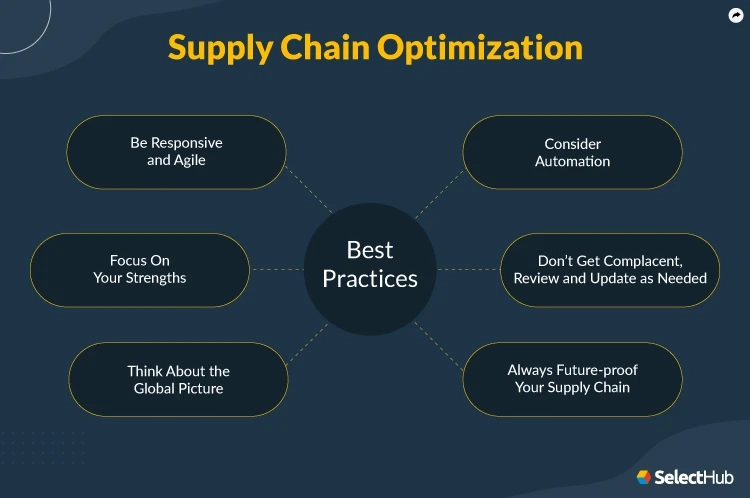In today's rapidly evolving business landscape, cloud-based supply chain management (SCM) strategies have become increasingly popular. Cloud SCM offers numerous advantages, including enhanced flexibility, scalability, and cost-efficiency. However, optimizing your cloud SCM strategy is essential to ensure you maximize its benefits and drive operational excellence. Here are five key ways to optimize your cloud SCM strategy:
Embrace Real-Time Collaboration and Visibility: One of the primary advantages of Oracle Fusion SCM Online Training is the ability to facilitate real-time collaboration and provide visibility across the entire supply chain. Leverage cloud-based SCM platforms that enable seamless collaboration between different stakeholders, including suppliers, manufacturers, distributors, and customers. By sharing real-time information, such as inventory levels, order statuses, and production schedules, all parties can make informed decisions and proactively address any potential issues. This improved collaboration and visibility streamline processes, reduce lead times, and enhance overall supply chain efficiency.
Leverage Data Analytics and Insights: Cloud SCM platforms generate vast amounts of data that can be leveraged to gain valuable insights and drive informed decision-making. Implement advanced analytics tools to analyze this data and uncover patterns, trends, and opportunities for optimization. For example, predictive analytics can help identify demand patterns, enabling proactive inventory management and accurate demand forecasting. By leveraging data analytics, organizations can make data-driven decisions, optimize processes, identify areas for improvement, and drive continuous enhancement across the supply chain.
Integrate IoT and Automation: The Internet of Things (IoT) plays a crucial role in optimizing cloud SCM strategies. By connecting physical objects and devices, organizations can gather real-time data, automate processes, and drive efficiency. Incorporate IoT-enabled sensors and devices throughout the supply chain to monitor inventory levels, track shipments, and enable predictive maintenance. Furthermore, automate repetitive tasks and workflows using cloud-based SCM solutions to streamline operations, reduce errors, and free up resources for more value-added activities. By embracing IoT and automation, organizations can achieve higher levels of operational efficiency and responsiveness.
Enhance Supply Chain Flexibility and Resilience: Cloud SCM offers inherent flexibility and scalability, allowing organizations to adapt to changing market dynamics and unexpected disruptions. Leverage cloud-based solutions that provide modular functionalities, enabling you to scale up or down based on demand fluctuations. Additionally, implement supply chain risk management strategies and develop contingency plans to mitigate potential disruptions. By leveraging Fusion SCM Training flexibility and proactively addressing risks, organizations can enhance their supply chain resilience and maintain uninterrupted operations, even in challenging circumstances.
Continuously Monitor and Improve Performance: Optimization is an ongoing process in cloud SCM. Implement performance monitoring mechanisms to track key performance indicators (KPIs) and measure the effectiveness of your SCM strategy. Cloud-based SCM platforms often offer built-in analytics and reporting capabilities, enabling you to monitor KPIs such as on-time delivery rates, order accuracy, inventory turnover, and supplier performance. Regularly analyze these metrics to identify areas for improvement, implement corrective measures, and drive continuous enhancement. By continuously monitoring and improving performance, organizations can achieve operational excellence, deliver superior customer service, and gain a competitive advantage.
In conclusion, optimizing your cloud SCM strategy is crucial to harness the full potential of cloud-based SCM solutions. Embrace real-time collaboration and visibility, leverage data analytics and insights, integrate IoT and automation, enhance supply chain flexibility and resilience, and continuously monitor and improve performance. By adopting these strategies, organizations can streamline operations, drive efficiency, and achieve supply chain excellence in the cloud era.



